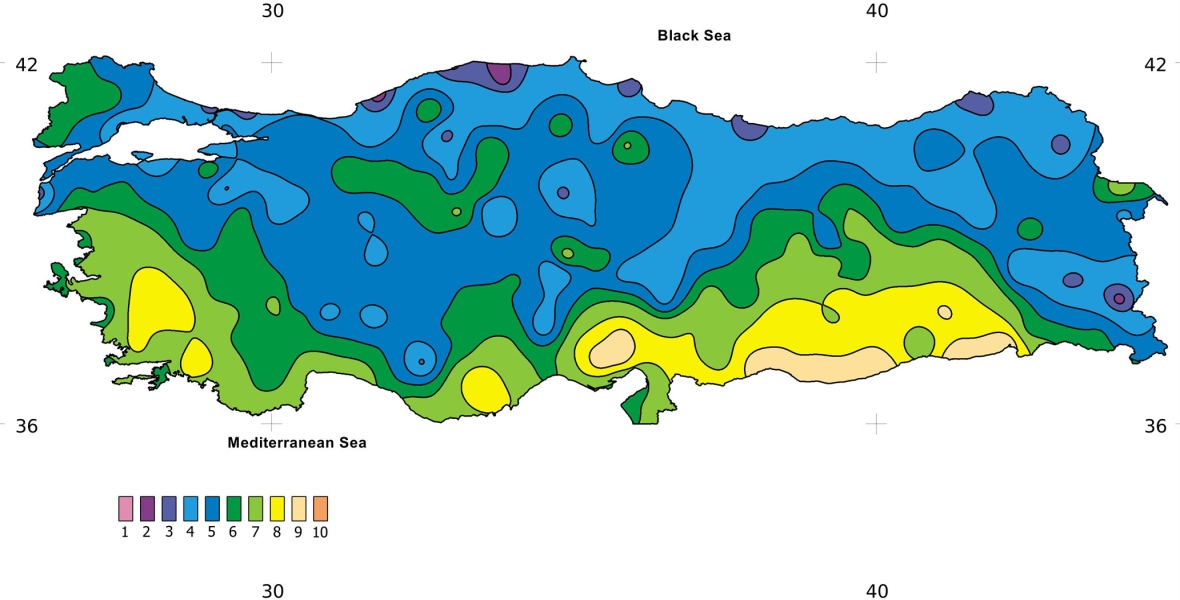
About Turkey Climate
Climates
About Turkey Climate. Turkey is located at the south of the medium climate zone when the geographical location is taken into consideration and is under the effect of “Mediterranean Climate”, which is a type of subtropical climate in which the summer season passes dry.
Mediterranean Region
The Mediterranean climate is encountered among the shoreline in which the summer season is hot and dry and winter season is warm and precipitant. Burdur and Isparta provinces behind the Toros (Taurus) Mountains to the west are the transition region between the Mediterranean climate and terrestrial climate. It is possible to swim in Mediterranean Region for the duration of 7 months ( Starting from the beginning of May until the end of October.)
Aegean Region
The Mediterranean climate is encountered among the shoreline. The climate hardens when moved towards the inner regions. At these regions, the terrestrial climate starts. The swimming season in Aegean Sea is 4-5 months (Between June and end of October ).
Marmara Region
The winter season is extremely cold. The frost events and snow precipitation is frequently encountered. The drought situation of summer season is lesser when compared with Mediterranean. The swimming season in Marmara Sea is 3 months (Between June and end of August). Sometimes it is possible to swim in sea in September
Black Sea Region
The Black Sea climate, which is precipitant in all seasons is separated into three types. In Eastern Black Sea Region (Trabzon, Rize) the precipitation is at the highest value, the summer season temperature is high and the winter season temperature is warm. In Central Black Sea Region, (Ordu) the precipitation is respectively in lesser values. It resembles the Mediterranean climate. The Western Black Sea Region (Zonguldak, Sinop) has low precipitation and the moisture ratio in summer season is low. The season for swimming in Black Sea is between the end of June until the middle of August.
Central Anatolia Region
The winter season is cold and the summer season is slightly warmer than the drought encountered in the Mediterranean climate type. The precipitation occurs in spring and autumn.
Eastern Anatolia Region
The severe terrestrial climate is encountered in Eastern Anatolia and the winter season continues for a long period with snow and frequent frost events. Summer seasons are chilly in respect to Southeastern Anatolia Region.
Southeastern Anatolia Region
The steppe climate type is encountered and in the summer season, very high temperatures are encountered. The drought is extremely severe. The evaporation is dense and might reach to 1000-2000 mm. or more yearly.
